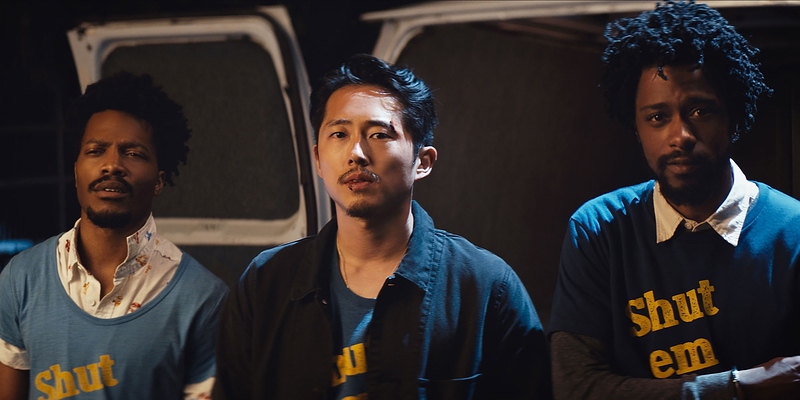At The Intercept, Briahna Gray heaps praise on Sorry to Bother You, a “surreal dystopian” new film written and directed by Boots Riley, an Oakland-based rapper and activist. As Gray notes, the film’s depiction of low-wage drudgery, racial dynamics, and class solidarity make it a clear-eyed and inspiring anti-capitalist film. An excerpt:
The movie centers on a lethargic, underemployed millennial named Cassius “Cash” Green (Lakeith Stanfield), who finds a job at a bleak, basement-level telemarketing company. Cash’s girlfriend Detroit (Tessa Thompson) is a performance artist who also needs part-time work, and soon she, Cash, and Cash’s friend Salvador (comedian Jermaine Fowler) are siloed in adjoining cubicles desperately attempting to sell encyclopedias to Americans who themselves are preoccupied by varying levels of personal or financial turmoil …
Whereas in most films, the narrative tension would center on whether Cash is justified in “selling out” in order to pay his bills, Riley introduces another, more visceral, element — one that makes the film feel genuinely revolutionary. On the same day that Cash is promoted, a charismatic union organizer named Squeeze, played by Steven Yeun, succeeds in organizing a strike for better wages. The central conflict, then, is between the strikers and Cash, who breaks the picket line each morning with the help of an increasingly militarized police force — at least until the third-act twist tips his conscience.
“Sorry to Bother You” is unique insofar as it is not a story in which our protagonists escape their lowly material circumstances through individual industry, professional grit, or uncommon genius. Rather, it juxtaposes meritocratic excessive wealth with a living wage earned through solidarity. The former comes by chance and accrues only to a chosen few: Cash’s voice is a gift — not something one could work toward — and, because this gift is both profitable and rare, it’s highly valued. By contrast, the telemarketing employees hope to gain a dignified standard of living for everyone by withholding their labor en masse
Image: Still from Sorry to Bother You.
